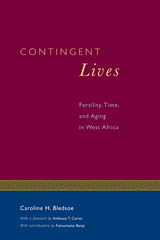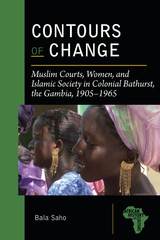
Using ethnographic and demographic data from a three-year study in rural Gambia, Contingent Lives explains this seemingly counterintuitive fact by juxtaposing two very different understandings of the life course: one is a linear, Western model that equates aging and the ability to reproduce with the passage of time, the other a Gambian model that views aging as contingent on the cumulative physical, social, and spiritual hardships of personal history, especially obstetric trauma. Viewing each of these two models from the perspective of the other, Caroline Bledsoe produces fresh understandings of the classical anthropological subjects of reproduction, time, and aging as culturally shaped within women's conjugal lives. Her insights will be welcomed by scholars of anthropology and demography as well as by those working in public health, development studies, gerontology, and the history of medicine.


In the 1980s, world recession, drought, civil conflict, and other forces brought major economic upheaval to the countries of Sub-Saharan Africa. Most of the early efforts by governments to stabilize their economies met with little success, but The Gambia was an exception. In 1985 the government introduced the Economic Recovery Program, one of the most sweeping reform programs attempted on the continent. The economy quickly stabilized, with the rate of inflation falling to below ten percent and the overall balance of payments in surplus for the first time since the early 1970s.
Economic Recovery in The Gambia examines The Gambia's success in depth. It analyzes a wide range of policy reforms-exchange rates, taxation, foreign debt, agriculture, state-owned enterprises, customs inspection-and in each case, the authors review problems the government faced, steps that were taken to address them, and the success and failures of the reform initiatives. These economic and institutional analyses are complemented by an examination of the politics of reform and the role that donor agencies played. The final chapter summarizes important lessons from The Gambia's experience, and provides insights for other countries in Sub-Saharan Africa.
READERS
Browse our collection.
PUBLISHERS
See BiblioVault's publisher services.
STUDENT SERVICES
Files for college accessibility offices.
UChicago Accessibility Resources
home | accessibility | search | about | contact us
BiblioVault ® 2001 - 2025
The University of Chicago Press









